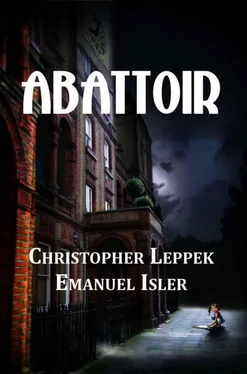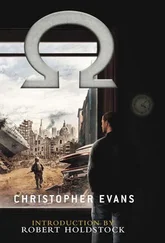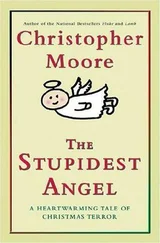Nothing.
Wingnut smirked. Plan C it is…
Cross put his hands back to his temples and closed his eyes. “I am emptying my mind of all thoughts and emotions, of all clutter, so I can hear you. I… ”
The mystic began to walk. With his eyes still closed, he started near the back of the makeshift set, near the ramp. He walked in a straight shuffle until he was just a few inches from the far wall, then changed direction, turning around and walking back the way he came. It looked like somebody advancing in a long invisible line for an amusement park ride.
Wingnut frantically signaled with his hand for the two cameramen to switch to hand-held. They began to follow him in his blind, yet strangely purposeful, shuffle back and forth across the room.
“I think I can hear you,” Cross said at last, not stopping. “But I don’t understand what you’re trying to say. It’s not coming in words. It’s not coming in thoughts. It’s coming in… ”
Cross approached the ramp’s entry point.
Wingnut directed one of the cameramen to move in for a close-up of Cross’s face. When the camera came in tight, the mystic’s face filling the entire frame, his eyes suddenly shot open.
The cameraman jumped, not noticing that the time codes in his viewfinder had begun to flash zero.
“No!” Cross screamed, his voice full of fear. His eyes grew wide and frantic. Terrified.
“No! Not me! Please. I don’t deserve that !”
Wingnut was growing nervous. This wasn’t Cross’s style at all. Something was wrong…
“Not me! Why me , for God’s sake? What did I do?”
His voice was now pleading, more than terrified. He sounded like a desperate child.
Wingnut spoke into his mike. “I’m worried, J. B. This is getting freaky.”
“I know,” the director’s voice came back in the earpiece. “I don’t care. Keep rolling.”
“But… ”
“Just keep it fucking rolling, Wingnut.”
“Gotcha.”
Cross was now stumbling erratically. It almost appeared as if he were being shoved by something behind, and he was trying to resist. At last, despite his contortions, he came to the bottom of the ramp.
Cantrell watched, his horrified expression reflected in the faces of every crewman on the floor. He was suddenly very grateful that Su Ling and Anna had left.
Shuffling up the ramp, Cross began to moan, in long, mournful tones. He no longer made any effort to speak actual words.
Wingnut rubbed a hand across his damp forehead.
“I think we’d better cut this off, J.B.,” he said, no longer trying to keep his voice low. “This isn’t right, dude. I think he’s losing it.”
The calm voice of the director wasted no time in his reply.
“Keep rolling. Just keep rolling.”
§
As his father entered the last mile—his arms and legs shackled—Cross could smell his fear.
He walked slightly behind the small group before him. His father, dressed in his striped prison jumpsuit, led the way, a burly, unsmiling state patrolman holding tight to each arm, urging him on.
A lone priest, a man in his 70s, walked directly behind the condemned man, whispering Psalms into his ear.
The boy who was Cross did not wonder why he was walking down this deadly hallway; the same he’d imagined countless times in the life he was to lead.
But he knew it was no dream. He could smell the linoleum wax on the floor, the institutional sterility of the prison, the cold sweat that was coming from his beloved father.
Cross watched helplessly as the door to the death chamber clanged open.
“This way, Mr. Cross,” one of the guards said in a macabre maitre’d voice, directing his father into the surprisingly small space.
The boy caught only a glimpse of the room—the small crowd of designated witnesses gathered in a neat row of folding chairs on the other side of a large glass window; the executioner standing beside the main switch; the horrifyingly ordinary chair that sat directly in the middle.
Then the other guard led him away from the opening.
“This way, young man.”
Before he turned, the boy managed one final glimpse into the chamber, watching as the guards fastened his father’s arms and legs to the chair with thick leather straps.
He heard a low male voice, almost whispering: “Do you have any last words?”
Cross did not hear the reply. The guard was taking him swiftly away. He wanted to resist, to break away—to remain by his father’s side—but was unable to do any of those things.
Instead, like a sheep, he allowed himself to be herded, silent and unresisting, into another hallway.
But it was not really a hallway.
Cantrell grabbed Wingnut’s arm.
“You’ve got to stop this… ”
Cross was a third of the way up the ramp. His moans had begun to deteriorate, no longer even reminiscent of what a human throat might produce. To Cantrell, they sounded horribly bovine—the unmistakable sound of terrified, lowing cattle.
“I’ve tried, man. The director says to keep rolling.”
“Can’t you see that something’s wrong?”
Wingnut pushed Cantrell’s arm away, and ordered his hand-held cameramen to keep following Cross up the ramp.
It was not a hallway, but a ramp .
And he was no longer alone.
Cross was one of many now, all of them unbearably compressed into the narrow, fenced confines of the chute. He felt them shoving from behind, felt himself being pushed into those in front.
He smelled their fear too, but not the same as before. Much deeper; more primal .
They lowed, and Cross lowed with them.
The mass cries of the condemned.
None of them, including him, knew where they were. None of them knew why this was happening to them, or who was doing it.
But they all knew that this was a place of death.
They heard it above and before them, the pleading cries, the mechanical thump of the device which delivered the death blow, the jangle of chains, the shouting of men, the sharpening of knives.
And they smelled the fresh, warm scent of blood. Endless streams of it.
As their journey up the ramp progressed, they could feel the steaming liquid flowing down the wooden walkway beneath their hooves like a river; their hooves sticking in it as it began to dry, so that when they lifted their legs to take yet another step, they could feel the syrupy resistance.
It felt as if there were no longer any air in the place, or light, or sound. There was only fear—pure, undistilled, unthought, unrationalized fear. It seemed to seep from the stone walls, from the wood floor, from the breath of the condemned.
From everywhere.
The cameras were still rolling when Cross dropped down on all fours.
As he lowed—louder and shriller than before—his tongue protruded grotesquely from his mouth. He shook his head back and forth, as if trying to wake from a bad dream.
“This is insane,” Wingnut said into his mouthpiece.
“That’s an understatement,” came the reply.
Cantrell stood to the side, not believing what he was seeing. Was it possible that Cross was really staging this? Could he really be that good an actor?
He dismissed the thought in an instant. The man now nearing the top of the ramp, crawling on his hands and knees, making noises he’d never heard a human being make, was no longer Cross.
Cantrell feared that he might never be Cross again.
As the ramp neared its apex, there was only room for one animal at a time. The one directly before Cross was shoved into a narrow chute. He could not see what they were doing up there, but heard the awful mechanical thump, a terrible shudder passing through the animal’s pinned body.
Читать дальше












